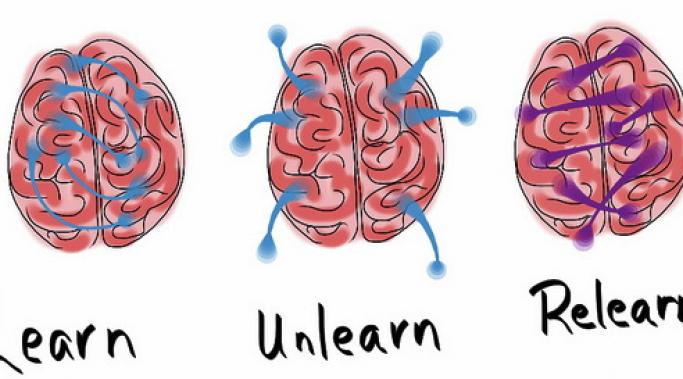A common misconception is that apart from medication, there is little someone diagnosed with adult attention deficit/hyperactivity disorder (ADHD) can do to maintain what passes as order in their life. While it certainly feels like that from time to time, it is simply not the case. There are some things an adult with ADHD can do to stack the odds in his or her favor.
ADHD Help
Technology is a tool, and like any tool it can be used for either constructive or destructive purposes. When it comes to focus and productivity, it’s wise to embrace all the tools at your disposal when you have adult attention deficit/hyperactivity disorder (ADHD).
At some point in every adult with attention-deficit/hyperactivity disorder's (ADHD) life, there comes a time when she needs to pay it forward. Friday, I had the opportunity to pay forward my history with this disorder to an adult ADHD newbie, a person freshly diagnosed. He was four months post-diagnosis and, he reported, sought help due to some issues at work with attention. At 30, having been diagnosed over 10 years ago, I feel it is my duty to pay it forward and to let newbies in on any insights I might possess that took me years to learn. What should every newbie know - and what should we diagnosed in years past let them in on?
Before heading back to school in 2012, I spent about seven years in the workforce. I was a real adult. I paid bills on time; bought and sold a car; and, rode public transportation. I had relationships. I lived in Houston, Texas on Cape Cod and in Boston -- totally a real adult. Also, oh yeah, like I've told you all a thousand times before, I did all this while having adult attention-deficit/hyperactivity disorder (ADHD), which made everything just a little bit more difficult than it needed to be. I was honest at each of my places of work regarding my diagnosis. Though I had no formal accommodations, steps were made at times (intentionally or naturally) to make life a little easier for me (For Mental Illness, Should I Check the Disability Box?).
Adult ADHD, School and the ADA
First off, let me say that I am not an expert on the Americans with Disabilities Act (ADA). I only know how my own story and how my adult attention-deficit/hyperactivity disorder (ADHD) has interacted with the ADA in the workplace and during my time in higher education. I could, of course, make this disclaimer before each of my adult ADHD blog articles, but feel it's extra important for this one as it involves sensitive, intricate and detailed legal workings. I am no lawyer and never will be. After these three years of physical therapy school are done, I plan on being done as well!
Hello again, friends. This week I'm going to write about how to follow my own advice (or the advice of anyone) while simultaneously having adult attention-deficit/hyperactivity disorder (ADHD). In my last post, I wrote about a bunch of things and also mentioned how great it was to be on break from school and have some time off. I disagree with my last-week self. It is not fun to be on break and I'm unsure how to now structure my time. I've known how to do it in the past, so why do I feel like I need to re-learn it now?
I've got my computer tuned to one of those fun websites that let's you watch a ton of television and I'm watching season four of Top Chef. There is one person on this season that has got me wondering how we, those of us with attention-deficit/hyperactivity disorder (ADHD), look to others. I have zero idea whether he has adult ADHD, but it sure does seem like it. What do I mean by that?
About two years ago, when I was still living in Boston, I found that love for running people are always talking about. That thing that gets them out of bed and running every day - a runner's "high." I found it and I loved it. Then, I started physical therapy school and lost any time for running to the hours and hours of classroom and out-of-classroom work. About a month ago, my wife and I began the Couch to 5k and it's amazing.
Jerome et al released a study in 2006 titled What we know about ADHD and driving risk. The study was a meta-analysis, which means that it took the results from many studies and boiled them down to a single clinical bottom line. The meta-analysis showed that those of us with adult attention-deficit/hyperactivity disorder (ADHD) are, indeed, at far "higher than normal rates of negative driving outcomes." This doesn't mean we have higher rates of accidents, exactly, but can include citations, speeding tickets and the like. What do we do?
It's always the easiest to learn when material is taught right in line with your learning style, with or without adult attention-deficit/hyperactivity disorder (ADHD). I think the flip side of any learning style is your ability to support your learning style. There are ways to take notes and pay attention that enhance your learning style no matter the lecturer's style. I'm not doing a great job right now in my current class at supporting my own style, because sometimes it feels like it takes too much work.









